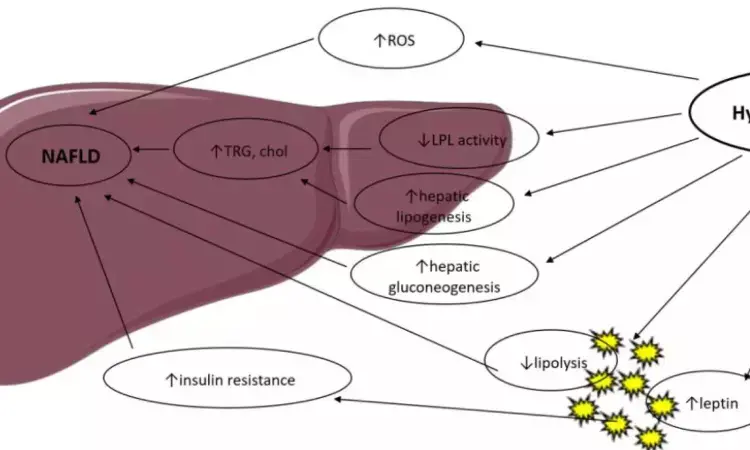- Home
- Medical news & Guidelines
- Anesthesiology
- Cardiology and CTVS
- Critical Care
- Dentistry
- Dermatology
- Diabetes and Endocrinology
- ENT
- Gastroenterology
- Medicine
- Nephrology
- Neurology
- Obstretics-Gynaecology
- Oncology
- Ophthalmology
- Orthopaedics
- Pediatrics-Neonatology
- Psychiatry
- Pulmonology
- Radiology
- Surgery
- Urology
- Laboratory Medicine
- Diet
- Nursing
- Paramedical
- Physiotherapy
- Health news
- Fact Check
- Bone Health Fact Check
- Brain Health Fact Check
- Cancer Related Fact Check
- Child Care Fact Check
- Dental and oral health fact check
- Diabetes and metabolic health fact check
- Diet and Nutrition Fact Check
- Eye and ENT Care Fact Check
- Fitness fact check
- Gut health fact check
- Heart health fact check
- Kidney health fact check
- Medical education fact check
- Men's health fact check
- Respiratory fact check
- Skin and hair care fact check
- Vaccine and Immunization fact check
- Women's health fact check
- AYUSH
- State News
- Andaman and Nicobar Islands
- Andhra Pradesh
- Arunachal Pradesh
- Assam
- Bihar
- Chandigarh
- Chattisgarh
- Dadra and Nagar Haveli
- Daman and Diu
- Delhi
- Goa
- Gujarat
- Haryana
- Himachal Pradesh
- Jammu & Kashmir
- Jharkhand
- Karnataka
- Kerala
- Ladakh
- Lakshadweep
- Madhya Pradesh
- Maharashtra
- Manipur
- Meghalaya
- Mizoram
- Nagaland
- Odisha
- Puducherry
- Punjab
- Rajasthan
- Sikkim
- Tamil Nadu
- Telangana
- Tripura
- Uttar Pradesh
- Uttrakhand
- West Bengal
- Medical Education
- Industry
Elevated TSH concentrations associated with advanced hepatic fibrosis, even in euthyroid state

Low thyroid function is associated with an increased risk of advanced fibrosis in patients with metabolic dysfunction-associated fatty liver disease suggests a recent study published in the BMC Gastroenterology
Observational studies showed that low thyroid function may perturb liver function. We aimed to evaluate the association of low thyroid function with both metabolic dysfunction-associated fatty liver disease (MAFLD) and advanced hepatic fibrosis.
Results
• A total of 19,946 participants were included, among which 14,789 were strict-normal thyroid function, 4,328 were low-normal thyroid function, 829 were subclinical hypothyroidism.
• TSH levels were significantly higher in MAFLD patients with a FIB-4 > 2.67 and /or NFS > 0.676 than their counterparts.
• The logistic regression model adjusted for age and sex showed that low-normal thyroid function increased the risk of MAFLD
• Multivariable regression model adjusted for age, sex, body mass index, type 2 diabetes, and hypertension showed low-normal thyroid function increased the risk of advanced fibrosis in patients with MAFLD
• Elevated TSH concentrations are associated with advanced hepatic fibrosis, even in the euthyroid state.
TAKE-HOME MESSAGE
This study assessed the association of hypoglycemia with concomitant use of sulfonylureas and beta-blockers versus sulfonylureas alone in patients with type 2 diabetes. Overall, the risk of hypoglycemia was higher in patients on both medications than in those on sulfonylureas alone even when adjusted for relative comorbidities such as heart failure and liver cirrhosis.
Patients may be at a higher risk for hypoglycemia with the use of beta-blockers in combination with sulfonylureas.
For further reference:
.Liu, Z. et al. Low thyroid function is associated with an increased risk of advanced fibrosis in patients with metabolic dysfunction-associated fatty liver disease. BMC Gastroenterol 23, 3 (2023). https://doi.org/10.1186/s12876-022-02612-3
Dr. Shravani Dali has completed her BDS from Pravara institute of medical sciences, loni. Following which she extensively worked in the healthcare sector for 2+ years. She has been actively involved in writing blogs in field of health and wellness. Currently she is pursuing her Masters of public health-health administration from Tata institute of social sciences. She can be contacted at editorial@medicaldialogues.in.
Dr Kamal Kant Kohli-MBBS, DTCD- a chest specialist with more than 30 years of practice and a flair for writing clinical articles, Dr Kamal Kant Kohli joined Medical Dialogues as a Chief Editor of Medical News. Besides writing articles, as an editor, he proofreads and verifies all the medical content published on Medical Dialogues including those coming from journals, studies,medical conferences,guidelines etc. Email: drkohli@medicaldialogues.in. Contact no. 011-43720751


